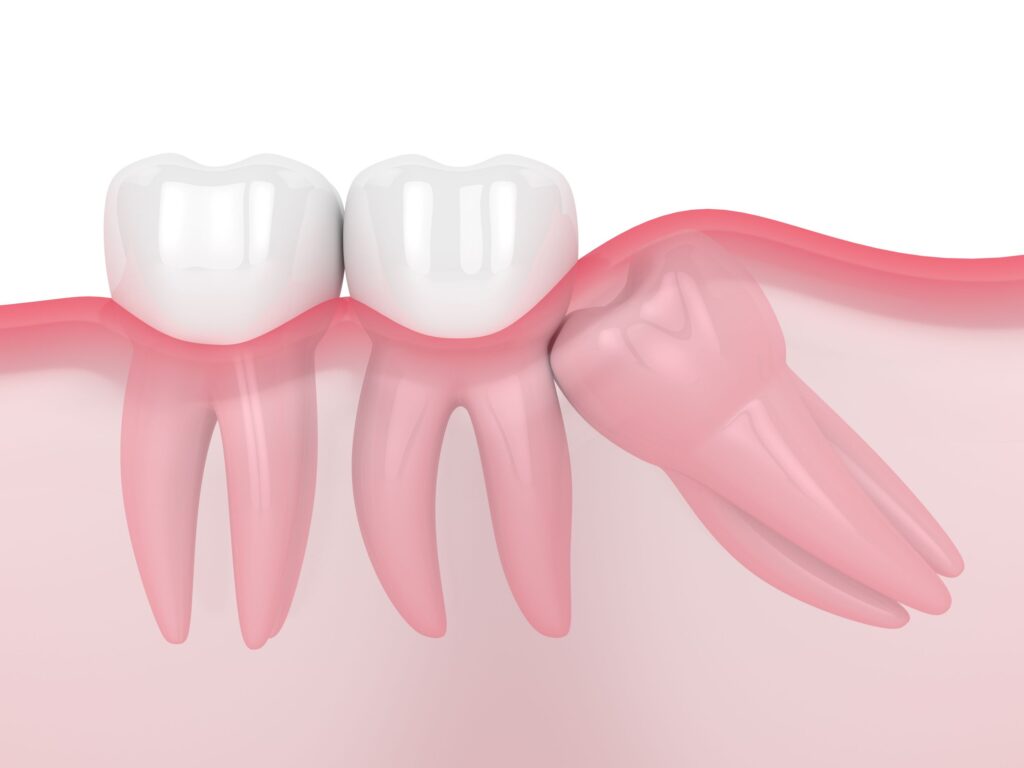
It’s normal to have questions if you’re a young adult and your dentist recently recommended removing your wisdom teeth, especially if they aren’t causing any problems. You might find yourself wondering whether it’s truly necessary to remove them. After all, why invest resources and recovery time in a procedure if you don’t need it?
The truth is that although these late arrivals might feel fine now, there’s a good chance they’ll cause issues later. Continue reading to learn why your dentist may have recommended this treatment even if your wisdom teeth seem harmless.
What Are Wisdom Teeth?
These last molars grow in years after all your other adult teeth arrive, usually around the ages of 17 to 25. Most people have four of them that erupt behind their other molars in each quadrant of their mouths, but some people only have a few, and others are lucky enough not to grow any at all.
Our ancestors likely needed these teeth to replace missing or damaged molars as they neared adulthood. It’s believed they subsisted on a rough diet of roots, nuts, berries, and chewy meats that could wear down their enamel or break their pearly whites. Today, we cook food and have access to dental care, making wisdom teeth a vestigial feature, meaning they no longer serve a functional purpose.
Why Extract Healthy Wisdom Teeth?
It’s natural to wonder why you should undergo an invasive procedure if your farthest molars aren’t even causing any concerns. However, it’s often best to remove them sooner rather than later for a few reasons.
Firstly, when you’re younger, the roots of your wisdom teeth haven’t yet fully formed, making it easier to extract them from your jawbone. Also, your jaw is less dense as a youth, leading to a swifter recovery.
How Are Wisdom Teeth Problematic?
Also, the longer you wait to have them extracted, the more likely they are to cause dental dilemmas like:
- Decay and disease. They frequently only partially erupt, making brushing and flossing them thoroughly nearly impossible. This increases the likelihood of developing gingivitis or caries.
- Overcrowding. They’re infamous for pushing neighboring teeth out of alignment, which unevenly wears down their enamel and leaves them vulnerable to harm.
- Impaction. If they remain hidden beneath the gums, they will likely become painfully infected and require a surgical extraction.
- Cysts. A small, fluid-filled sac sometimes forms around a wisdom tooth stuck in your jaw, causing discomfort and frustration.
If you’re still uncertain why your dentist recommended a wisdom tooth extraction, the best way to find out is to ask them directly! They’re usually happy to discuss their reasons with you so you can make a fully informed decision to support your smile.
About the Practice
Patients at Ross & Sourlis Family Dentistry of Rock Hill benefit from several experts who work together to offer a full array of services conveniently under one roof. With 4+ decades of combined experience, they provide everything from basic preventative care to more complex procedures, like wisdom tooth extractions. Their friendly and welcoming practice is equipped with advanced dental technology to improve your comfort while delivering fully personalized treatment plans designed to meet your unique needs. If you’re concerned about wisdom teeth or jaw pain, you can request an appointment on the website or call (803) 592-6201.

